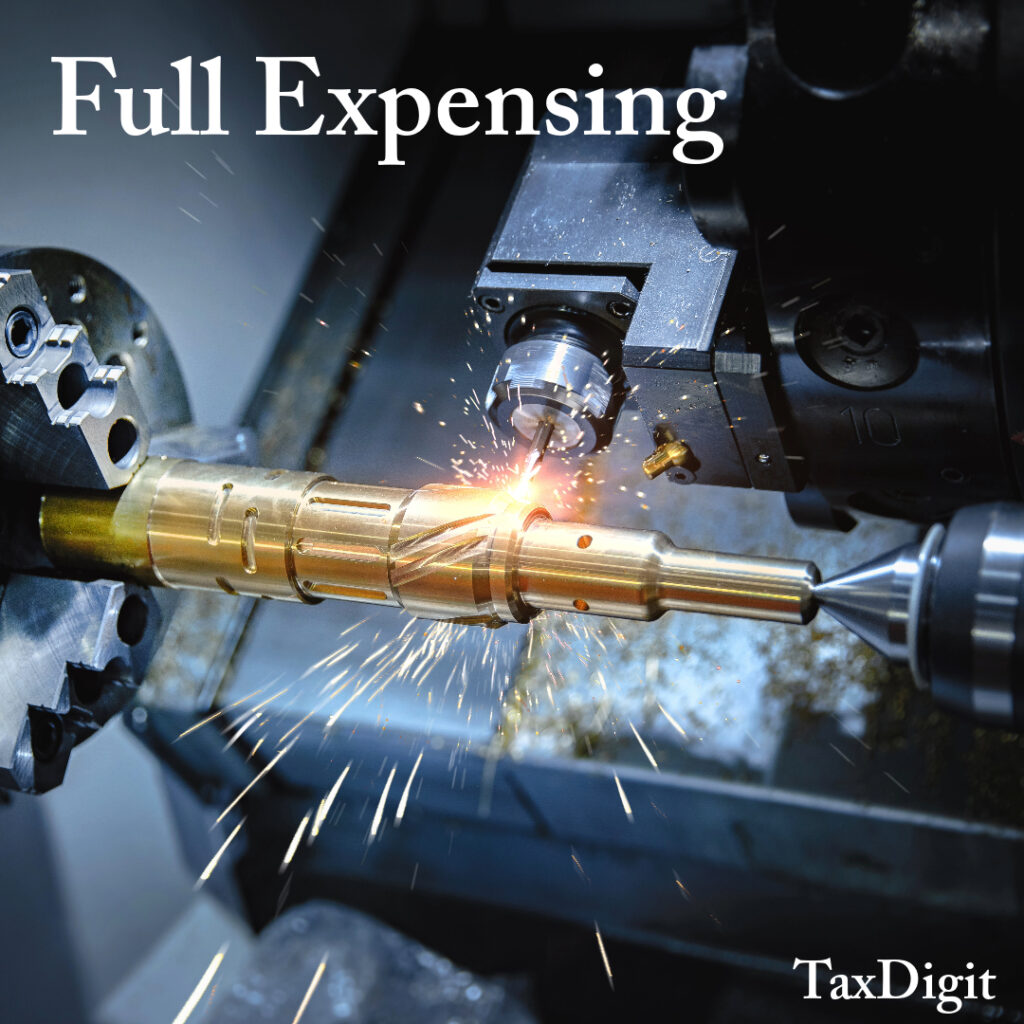Full Expensing
In a bid to bolster investment and spur economic growth, the UK Government introduced full expensing as a capital allowance tax scheme in the spring budget of 2023. This initiative allows companies to deduct a remarkable 100% of the cost of capital equipment from their profits in the year of purchase, as opposed to spreading the cost over multiple tax years. Originally set to expire on 31st March 2026, full expensing has been cemented as a permanent fixture following the Chancellor’s Autumn Statement in November 2023. Here’s everything you need to know about this tax-saving opportunity.

How Does Full Expensing Work?
Full expensing replaces the previous super-deduction capital allowance, offering a simpler and more immediate benefit for businesses. This scheme enables companies to write off the entire cost of qualifying plant and machinery in the year of acquisition. Unlike its predecessor, there is no minimum or maximum limit on the amount of investment that qualifies for full expensing relief. This translates to significant tax savings, potentially up to 25p for every £1 spent.
It’s important to note that assets acquired through hire purchase or finance leases are subject to special capital allowance rules. While the government is considering expanding full expensing to include leased assets, for now, it only applies to assets owned by the business using them.
To delve deeper into the intricacies of full expensing and how it can benefit your business, consider reaching out to TaxDigit for more information.
Why Full Expensing?
The introduction of full expensing aims to incentivise UK companies to invest more in modern plant, tools, machinery, and technology. In comparison to 2021, where UK business investment constituted 10.0% of GDP, falling short of the 12.5% average among international competitors, the government seeks to bridge this gap and foster a more competitive economic landscape.
What Qualifies as Capital Expenses?
Capital expenses, in the context of full expensing, refer to long-term investments with a useful life of one year or more. This includes a diverse range of assets such as warehousing equipment, tools, construction machinery, computers, vehicles, office equipment, and more.
How Does Full Expensing Compare to Super-Deduction?
While full expensing is slightly less generous than the super-deduction, the former offers a more straightforward approach. Super-deduction allowed companies to deduct 130% of capital expenses, whereas full expensing is limited to 100% of the cost of purchased assets. To illustrate, let’s compare the tax savings for a company with £100,000 in capital expenses under both schemes.
| Scheme | Expenditure | Deduction Rate | Effective Rate | Tax Saving |
|---|---|---|---|---|
| Super-deduction | £100,000 | 130% | 19% | £24,700 |
| Full expensing | £100,000 | 100% | 19% – 26.5% | £20,750 |
Realising the Benefits: An Example
Consider a company with £10 million in gross annual profits for the 2023-24 tax year. By investing £10 million in new plant and machinery under full expensing, the business can deduct the entire sum from its gross profits, reducing the corporation tax bill to zero. This results in a substantial tax saving of £2,500,000, effectively reducing the real expense of the production line by 25%.
Eligibility and Considerations
Full expensing is exclusive to incorporated businesses that pay corporation tax. Sole traders, partnerships, and LLPs are not eligible. If your profits are too low or your business has incurred a loss, you can only claim full expensing against your pre-tax profits. Any excess can be rolled over to offset profits in the following tax year.
Explore Your Options with TaxDigit
For a comprehensive understanding of how full expensing can benefit your business and to navigate the complexities of capital allowances, consider consulting with TaxDigit. Our expertise can guide you through the nuances of tax planning, ensuring you make the most of available incentives.
To explore the full potential of full expensing and other capital allowance options, contact TaxDigit today. Your path to tax efficiency and business growth starts with informed decisions.
